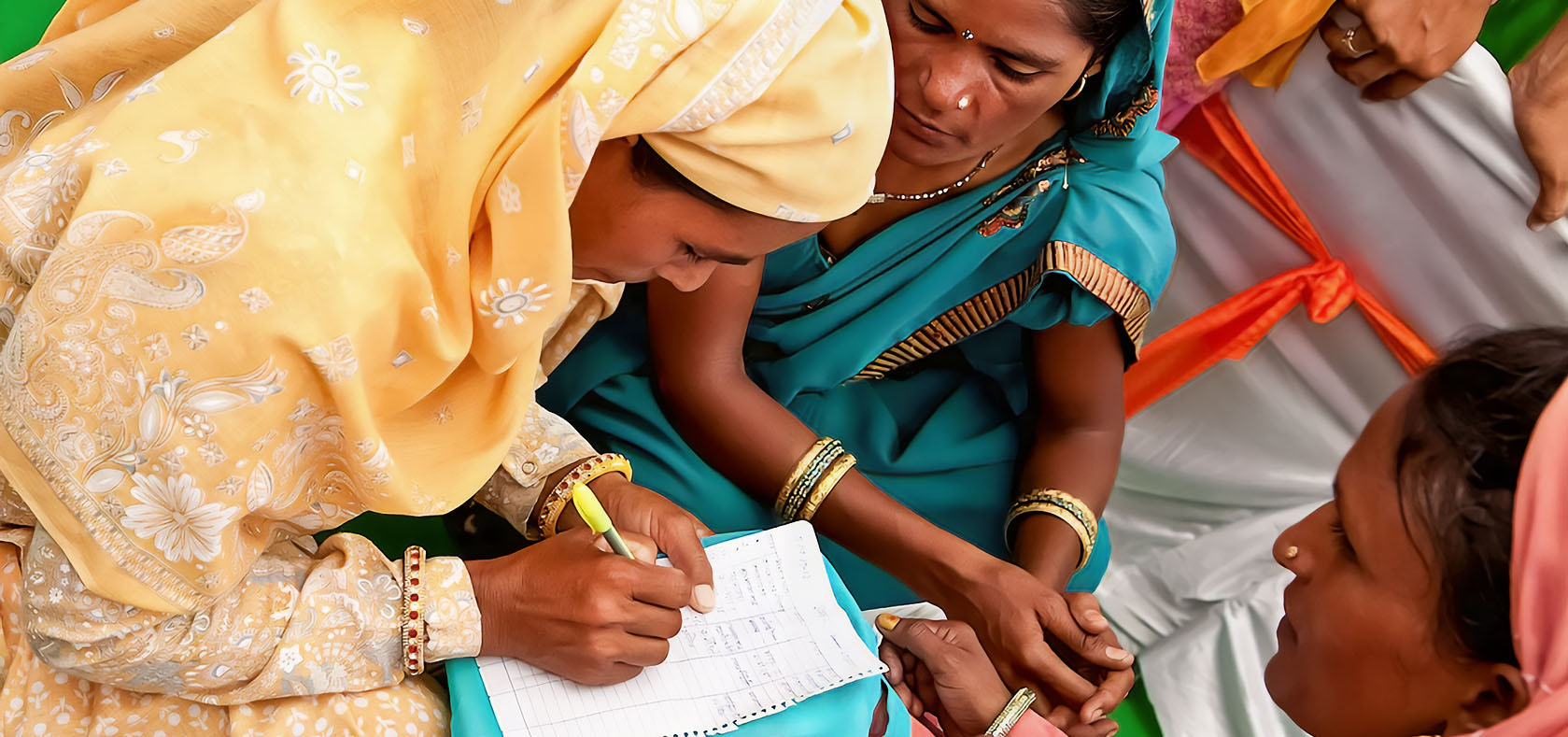OP-ED: Technology has placed women’s financial inclusion within reach
India’s G20 presidency ought to mark a turning point in achieving this vital goal across the world
Date:
Authors: Prerna Saxena, Kanta Singh*
Originally published on The Mint Newspaper, 26 June 2023

In a rapidly evolving digital landscape, with technology reshaping industries and societies, digital public infrastructure (DPI) has emerged as a catalyst for financial inclusion. Recognizing its potential to foster gender equality, India’s G20 presidency has prioritized it as a drive to boost women’s economic participation through digital means. By embracing “women-led development”, India’s presidency paves the way for a transformative journey with myriad opportunities. Gender transformative DPI is poised to accelerate an inclusive digital transformation, empowering women to manage their resources and make independent financial decisions.
India has achieved remarkable progress in promoting digital inclusion. Since 2011, the country has made significant strides, doubling bank account ownership to help close gender and income gaps. The Digital India effort has been instrumental in creating DPI that benefits marginalized groups. The foundation of India’s Digital Stack comprises Aadhaar, Unified Payments Interface (UPI) and DigiLocker. Additional transformative initiatives include PMGDISHA and Jan Dhan Yojana. These advancements have increased adult transaction account ownership from a mere quarter in 2008 to an impressive 80 per cent today. With over 90 per cent of the population possessing an Aadhaar ID and 140 million using DigiLocker, India is well placed for other applications. The statistics are telling: monthly UPI transactions surpass 5 billion and Jan Dhan has opened a staggering 400.5 million bank accounts.
However, United Nations Women’s research sheds light on critical areas that require focused action, as it reveals persistent gender disparities in power and decision-making. While digital financial inclusion is vital, gender disparities still exist in women’s access to digital financial services (DFS) and their comprehensive utilization. It’s crucial that key public and private sector actors promote DFS among women, provide them with necessary information for informed financial decisions, ensure their protection as customers, and enable their active engagement with these accounts. About 1 billion women face barriers to formal financial services, including limited access to identification documents, mobile phones, digital skills and financial capability.
Digital inclusion for women holds priority in international frameworks such as the Beijing Declaration and UN Declaration on its 75th anniversary. The G20 High-Level Principles for Digital Financial Inclusion and the report on Advancing Women’s Digital Financial Inclusion by the G20’s Global Partnership for Financial Inclusion emphasize its significance. The 10-point action plan for financial equality championed by the Better Than Cash Alliance, UN Women, UN Capital Development Fund, the World Bank and Women’s World Banking amplifies this cause. Finance minister Nirmala Sitharaman has launched the UN Principles for Responsible Digital Payments, solidifying India’s commitment to women’s economic participation through digital financial inclusion. To enhance progress, governments can draw inspiration from three key factors.
First, enhancing cooperation between different government bodies can promote gender-sensitive financial initiatives and implement targeted steps for financially excluded women. In India, coordinated policy action by the ministries of finance and women and child development are needed. Second, guidelines should assist governments in collecting gender-disaggregated data, essential for designing policies that advance women’s financial equality. The Reserve Bank of India is promoting the collection and publication of such data, a valuable step towards gaining insight into women’s economic status and informing the development of policies and products to meet their specific needs.
Third, governments must incentivize financial service providers to prioritise women customers in diverse segments. This includes rural women, those in poverty or affected by climate events, elderly women, tribal women, and more. Training, support for female entrepreneurship, user-friendly interfaces in preferred languages and an enabling social environment are crucial in this endeavour.
The Knowledge and Experience Exchange Programme in Hyderabad earlier this year offered a platform for policy ideas. Organized by India in collaboration with the UN-based Better Than Cash Alliance, it showcased India’s commitment to women-led development. Success stories from Bangladesh, the Philippines, Rwanda, Colombia and others fuel global efforts for a digital revolution in favour of women and the underprivileged. India’s journey towards an inclusive digital economy could shine as an example.
While global leaders have been discussing the matter of financial inclusion at various high-level forums, we find ourselves at a crucial crossroads.
Led by India, the G20 currently has an opportunity to champion gender equality and create a future where no woman is left behind. Let us seize this moment and be a beacon of hope as we forge a sustainable, just and equal world. The time for this is now and the world is watching.
About the authors
Prerna Saxena & Kanta Singh are, respectively, head of Asia-Pacific, United Nations-based Better Than Cash Alliance, and deputy representative, India Country Office, UN Women